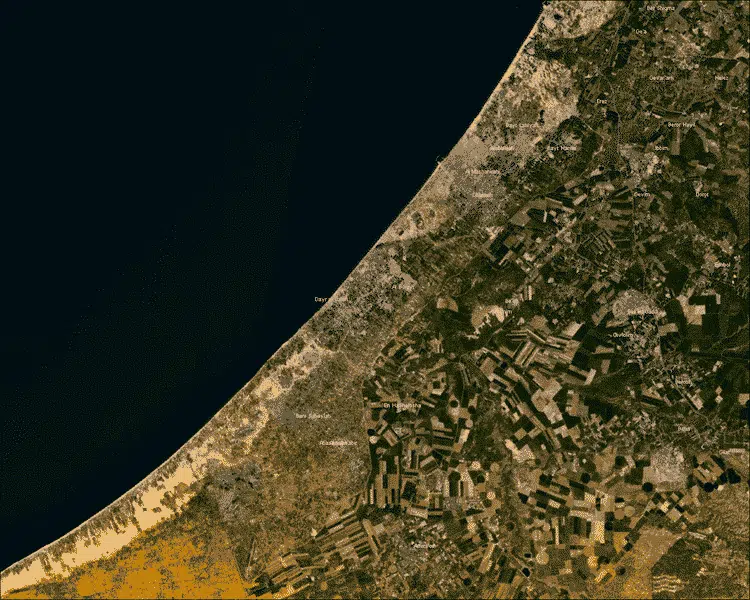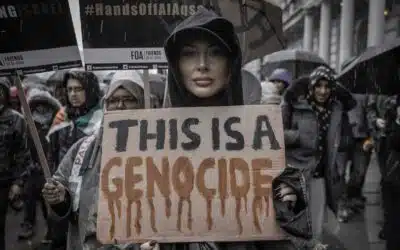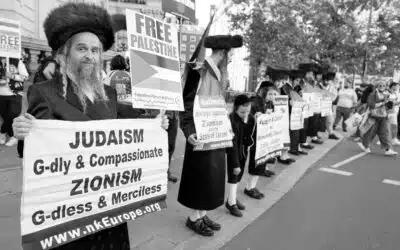The New York Times continues its consistent pattern of whitewashing Israel’s illegal blockade of the Gaza Strip. In the most recent example, Jodi Rudoren writes:
Hamas, which grew out of the Muslim Brotherhood, has been suffering politically and financially in recent years, particularly since last summer’s ouster in Egypt of President Mohamed Morsi, a Brotherhood leader. Egypt’s new military-backed government shut hundreds of smuggling tunnels that provided revenue to Hamas and critical materials for the Gaza economy, and it has also kept the Rafah crossing into Gaza closed. This has led to skyrocketing unemployment and fuel shortages in Gaza, and increased residents’ sense of imprisonment.
No mention of the fact that Israel has for years implemented a policy of collectively punishing the civilian population of the Gaza Strip, blockading movement of goods and people into and out of the territory and allowing only limited amounts of much-needed goods.
Here’s are a few relevant excerpts from my forthcoming book on the US role in the Israeli-Palestinian conflict illustrating how this is a modus operandi for the Times, whose reporting serves to manufacture consent for the US policy of supporting Israel’s crimes against the Palestinians:
The siege of Gaza continued. As peace activists planned again to sail two ships (the Irish veseel Saoirse, Gaelic for “Freedom”, and the Canadian Tahrir, Arabic for “Liberation”) to Gaza in November [2011], the U.S. State Department again threatened American citizens with criminal penalties if they participated, with the Canadian government obediently taking Washington’s cue to warn its own citizens from any attempt to challenge the illegal blockade. On November 4, the ships and the 27 civilians aboard were hijacked in international waters and forced to port in Ashdod.
Reporting on the incident for the [New York] Times, the only comment Isabel Kershner offered about the blockade’s legality was to relay Israel’s contention that it was “in accordance with international law” and cherry-picking that its position was “backed by the Palmer report”. She declined to inform her readers that the Palmer report did not present an authoritative legal opinion, or that it was contradicted by a large body of other reports and statements from U.N. bodies, the ICRC, human rights organizations, international law experts, etc.—all reaching the definitive conclusion that the blockade constituted an act of collective punishment in violation of international law.
[Kershner could have cited, for example, a report from the OCHA [United Nations Office for the Coordination of Humanitarian Affairs] that had been released just a few weeks prior, which stated that “The Gaza blockade (through the land, air and sea) is a denial of basic human rights in contravention of international law and amounts to collective punishment.”]
…
In a repeat of her propagandistic reporting on the ships to Gaza in November, Isabel Kershner on June 13 relayed to Times readers a statement from Netanyahu’s office that the U.N. Palmer Report had found Israel’s naval blockade to be legal. Once again, there was no mention of the fact this non-authoritative opinion was contradicted by an international consensus to the contrary. The very next day, 50 international aid groups, including seven U.N. organizations, issued the statement: “For over five years in Gaza, more than 1.6 million people have been under blockade in violation of international law. More than half of these people are children. We the undersigned say with one voice: ‘End the blockade now.’” Signatories included Amnesty International, CARE International, Christian Aid, Oxfam, and Save the Children. The U.N. signatory organizations were the Humanitarian Coordination/Resident Coordinator of the occupied Palestinian territory, the OHCHR, UNICEF, UNESCO, UNRWA, United Nations Women, and the WHO. Apart from running an AP wire story abridged down to a mere two paragraphs, the statement received no coverage in the Times.
…
In August 2012, UNRWA published a report titled “Gaza in 2020: A liveable place?” It concluded that without an end to Israel’s illegal blockade, the answer would be in the negative. The New York Times ran a story on it by Isabel Kershner, who naturally relayed Israel’s position that the blockade was “necessary to prevent the smuggling of weapons” while declining to relay the international consensus that it constituted collective punishment and was therefore in violation of international law.
If that whets your appetite, subscribe below to receive email updates and more inside looks at the book.



